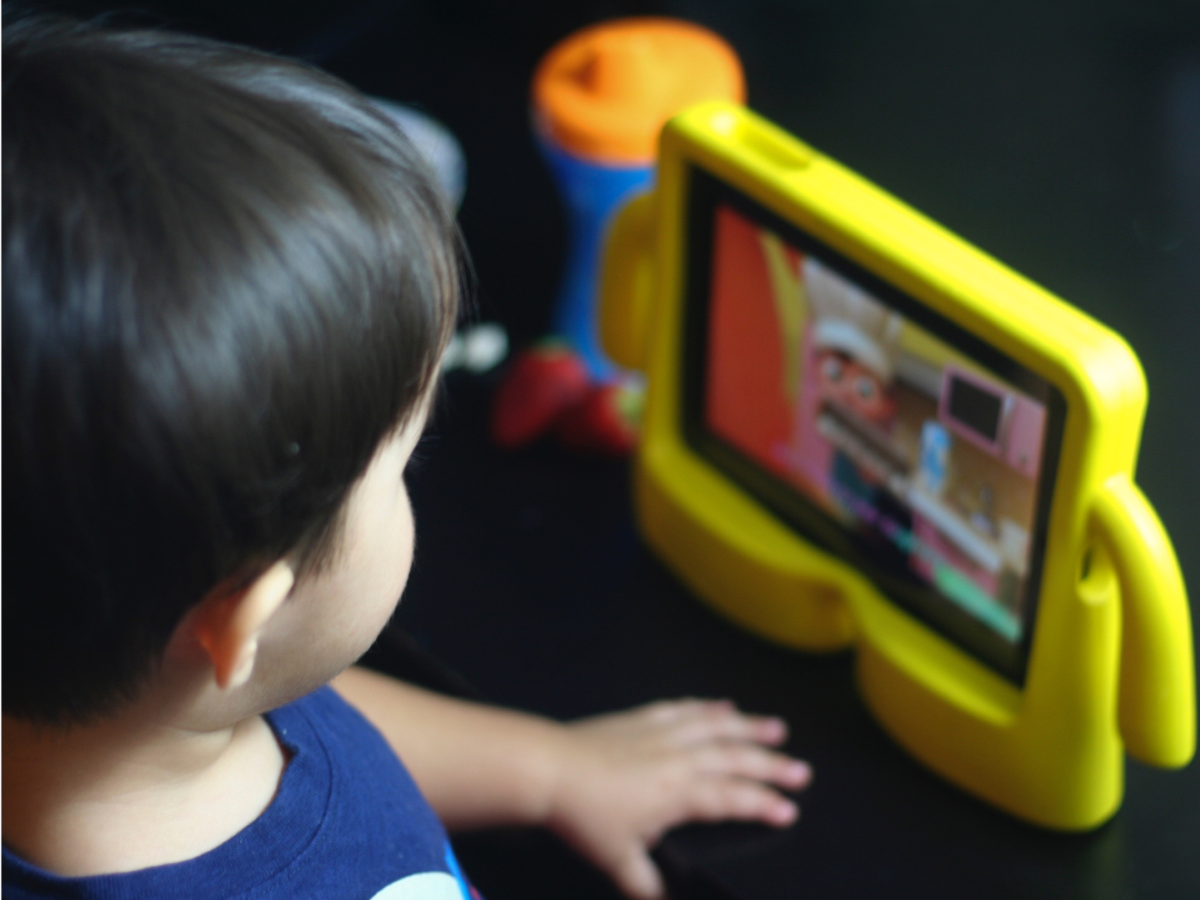Reducing Screen Time
Institute of Child Nutrition (ICN)
July 7, 2025

Unsurprisingly, people spend hours each day in front of screens, whether on computers, TVs, tablets, gaming systems, or smartphones. While media use can be a valuable source of learning and entertainment, excessive screen time can have negative effects. Our partners at the Institute of Child Nutrition explore the risks of too much screen time, provide recommendations, tips for limiting usage, and sample policy ideas for programs.
Risks of Excessive Screen Time
Too much screen time can lead to:
- Reduced sleep
- Reading fewer books
- Less time spent with family and friends
- Insufficient outdoor or physical activity
- Fewer opportunities to learn other ways to relax and have fun
These behaviors may result in:
- Problems with sleep, behavior, weight, attention, and mood (including anxiety and depression)
- Delays in social skills development
- Lower academic performance
- Poor self-image and body-image issues
Screen Time Recommendations
The American Academy of Pediatrics (AAP) recommends the following screen time guidelines:
- Children under 2: Avoid all screen time. If digital media is used with children 18–24 months, choose high-quality, educational programming supervised by a caregiver.
- Children ages 2–5: Limit screen time to one hour a day of high quality, educational, interactive programs that are nonviolent.
- Children ages six and older: Encourage healthy screen habits and set limits so screen time does not interfere with sleep, exercise, or other healthy behaviors.
Children learn better from live interactions with others than from screens. Reducing children’s screen time can have a lasting positive impact on their lifestyle.
Create a Screen Time Policy
Develop a screen time policy that limits media use and encourages physical activity. A policy provides clear guidelines for staff and families, reinforcing the positive habits you want to promote. Here are some ideas to include in a screen time policy:
- Children will not sit for more than 30 minutes at a time, excluding naps and mealtimes. Infants will not remain in a bouncy seat, swing, or playpen for over 15 minutes.
- Children under the age of 2 years will not engage in screen time.
- Screen time for children over the age of 2 years will consist of commercial-free, age-appropriate, educational programming that is integrated into the curriculum or promotes physical activity.
- Children will always be supervised during screen time activities.
- Screen time (including TV) is not allowed during mealtimes.
Help Families Develop a Screen Time Plan
Share your screen time policy with families and encourage them to set screen time limits at home, too. Inform parents about the importance of brain development during the early years and how interactive play is essential for building language, cognitive, and social-emotional skills. The AAP offers excellent resources and tips to help families manage screen time at home.
For even more information, check out ICN’s July Mealtime Memo.
